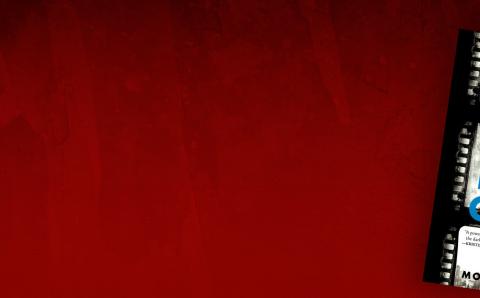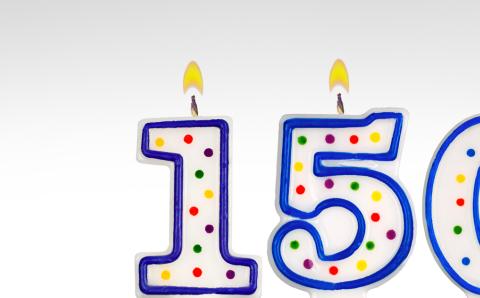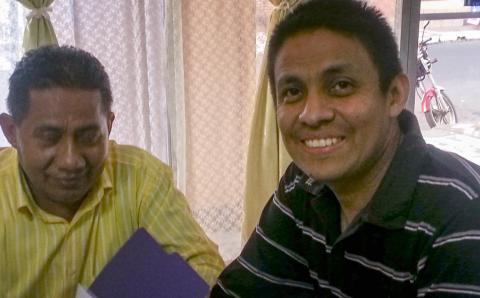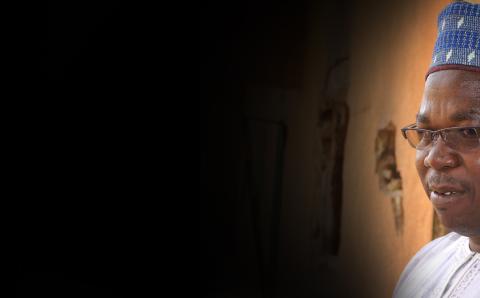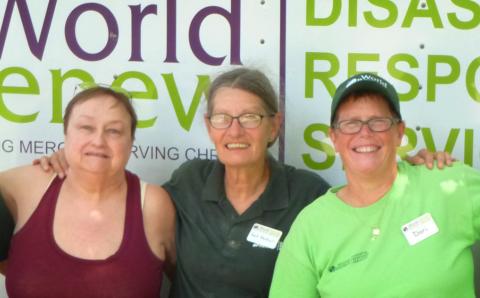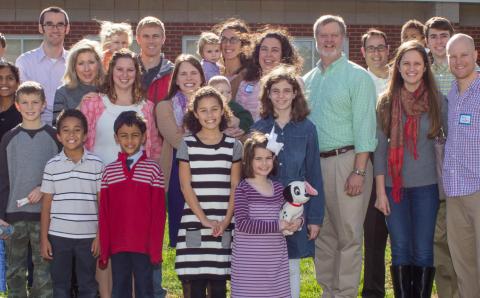“When I first came to Christ, I was told to throw it all out,” said Betty Krohn, speaking of her Aboriginal culture.
“I struggled for years with my identity . . . and it’s only here at Indian Metis Christian Fellowship that I’ve pushed back against that. God doesn’t make mistakes. God made me Aboriginal.”
Krohn has been the Chimatawa family youth supervisor for eight years at Indian Metis Christian Fellowship (IMCF), a ministry of the Christian Reformed Church in Regina, Sask.
“I’m more like a kokum now,” she said, using the Cree word for grandmother.
Krohn grew up in foster care without a connection to her home reserve and sees her work now as relearning and retaining culture.
“The question I always ask myself is: Is what I’m teaching growing and developing the kids for Christ, as Christian Aboriginal people? I tell the kids, ‘God loves you, all of you.’”
Krohn and her 27 “grandchildren” have been working on their powwow regalia for months now. She said the dancers express their personalities through the colors in their regalia.
“Their sewing isn’t always straight, and sometimes we have to do some of the work for them. But it’s not about the regalia looking perfect; it’s about the kids taking pride in their culture.”
The dancers will be wearing their regalia at IMCF’s annual celebration of National Aboriginal Day on June 21. People across Canada celebrate Indigenous culture on this day, which has been a national day of celebration since 1996. It is held on the summer solstice, because that is a sacred day to many Aboriginal peoples.
Christian Reformed churches across Canada also mark the day in their worship services on the Sunday closest to National Aboriginal Day. Worship materials are available through the Canadian Aboriginal Ministry Committee (CAMC) at bit.ly/AboriginalSunday. In 2015, almost 10,000 bulletin covers and inserts were ordered, and many churches also used the litany and prayer available on the CAMC website.
This is the eighth year that dancers from IMCF have participated in the celebration. “We teach them a couple dance steps and then tell them to dance to the glory of God,” said Krohn.
Gary Duthler has also been on a journey of learning about the beauty of Aboriginal cultures. An elder at Bethel CRC in Edmonton, Alberta, Duthler is part of a committee that is considering how to respond meaningfully to the Truth and Reconciliation Commission (TRC).
He said his learning began by listening to the stories of survivors of residential schools. “My first reaction when the stories from the TRC started to come out was to take it with a grain of salt. Things like this can be exaggerated.” But as the stories continued to surface, he had to rethink that attitude.
Duthler used to teach Canadian history at elementary schools, but the curriculum rarely covered residential schools. “If it was covered, it was seen as a good thing for Aboriginal peoples. The concept that we live on Aboriginal land never really entered the textbooks. Thankfully that curriculum is changing now.
“I’m passionate about making sure that we respond in a meaningful way,” Duthler said. “I have to make up for a whole lot of omission in my teaching in the past.”
About the Author
Danielle Rowaan is the CRC’s Justice Communication and Education coordinator.




